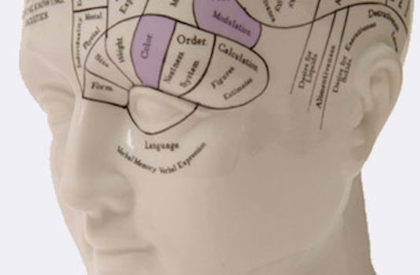Are your bad habits controlling you?
It's not just substances that can be addictive, such as alcohol or drugs. Many activities can become addictions, including gambling, shopping, using the internet, porn, and even sex.
How does addiction work?
When we engage in an enjoyable activity, we reap the benefits of our brain's 'feel good' chemicals. This can give us a buzzy, even 'high' feeling.
For some people, seeking out that high’ turns into a compulsive and uncontrollable desire. Even if getting it means increasingly negative and harmful consequences, or if the original activity itself has long stopped being fun. This is addiction.
Signs of addiction
Addiction can mean we act more and more erratically. It can mean lying and hiding things from loved ones, and of course lying to ourselves. It involves feelings of shame, loneliness, and self-hatred. And then there are the physical side effects to manage, such as general exhaustion, sleep issues, and constant colds and flu.
It becomes harder and harder to keep up appearances as addiction slowly takes a toll on all areas of our lives, including relationships, finances, career, and family.
What is addiction therapy and psychiatry?
Therapy for addiction helps you to examine the underlying causes that started the vicious cycle you are caught in, and the triggers that lead to each relapse. If your addiction is serious, you may also need to meet with a consultant psychiatrist, who can refer you to a rehabilitation centre if a residential stay is recommended.
Addiction counselling can also guide those around you, such as family and friends, to better understand your addiction and how to support you during your recovery.
CBT for addiction
Cognitive behavioural therapy (CBT) is a widely-used treatment for addiction that many therapists at Harley TherapyTM are trained in. CBT focuses on helping you understand the thoughts, feelings, and behaviours that contribute to cycles of dependency.
It can also be combined with mindfulness, a tool found by research to help with substance abuse and cravings1. Or with other forms of therapy to suit. Most of our addiction therapists are 'integrative', meaning they are trained in several schools of psychotherapeutic thought.
Addiction services at Harley Therapy™ London
It can take a lot of courage to overcome your feelings of shame and seek help for addiction. At Harley TherapyTM you are in safe hands. We have one of London's most highly regarded team of mental health experts, all of whom are trained at top institutions, have years of experience, and care passionately about what they do.
We of course offer therapy for alcoholism, gambling counselling, and porn addiction therapy, but also counselling for any other dependency you struggle with, even things like texting or romance addiction.
Related mental health issues
An addiction therapist or psychiatrist can also recognise and help you deal with any other psychological issues that may have been part of why you were vulnerable to addiction in the first place, or be a side-effect of it.
Common 'dual diagnosis' disorders and issues include:
- anger issues
- anxiety and panic attacks
- attention deficit hyperactivity disorder (ADHD)
- childhood sexual abuse or trauma
- depression
- obsessive compulsive disorder (OCD)
- post-traumatic stress disorder (PTSD)
- psychosis
- self-harm
- sleep disorders.
Tackling addiction – The Harley Therapy™ approach
Call us for a confidential chat to see how we can help with your addiction or with someone you know who needs some support. Or fill out our online booking form to make an appointment. We offer sessions at Harley Street, London Bridge, and in the City of London, as well as online counselling to suit.
FOOTNOTES
1Garland, Eric L, and Matthew O Howard. “Mindfulness-based treatment of addiction: current state of the field and envisioning the next wave of research.” Addiction science & clinical practice vol. 13,1 14. 18 Apr. 2018, doi:10.1186/s13722-018-0115-3.
View the ExpertsHow to book your appointment
Call us now on 0345 474 1724 OR book online
All practitioners are qualified and accredited with reputable professional associations.
Issues for Addiction Counselling
- alcohol abuse
- cocaine addiction
- compulsive buying disorder
- compulsive stealing
- drug addiction
- exercise addiction
- food addiction
- gambling disorder
- internet or TV addiction
- love and romance addiction
- pornography addiction
- recreational drug misuse
- sex addiction
- shopping addiction
- smoking
- substance misuse
- text addiction.
Meet the Experts
Enquiry Form
To make an enquiry, please fill in this confidential form. Our dedicated administrators will review your needs and get back to you as soon as possible.
What is the true meaning of addiction?
Addiction is a very big field, and you might hear different definitions. From a psychological perspective, addiction is when you can't stop yourself from engaging with a susbtance or activity even if the consequences are increasingly negative.
What are the main signs it's an addiction?
The ICD-11, the diagnostic guide put out by the World Health Organisation (WHO), refers to impaired control, increasing priority, and physiological features when discussing substance dependence. Impaired control means you are less and less able to control when you start and stop using, or for how long, or even where. All the parameters you set for yourself get overridden. Increasing priority means you start to put the substance or activity even before things you know should be more important, such as your job, or even your physical health. Physiological features means that you need more of the substance or activity to get the same feeling as before, or to avoid withdrawal.
What is an example of addiction?
A modern example would be text addiction. Control wise, this means you can't stop yourself from spending hours texting someone, and are losing control over when you start and stop and where you do it, such as even texting at work when it's forbidden or when behind the wheel. You might start to prioritise these endless texts over seeing friends, getting work done, and sleeping. And you might start to need more texts to feel good than before.





.webp)
.webp)